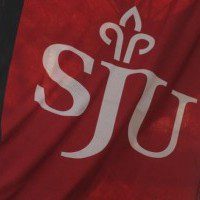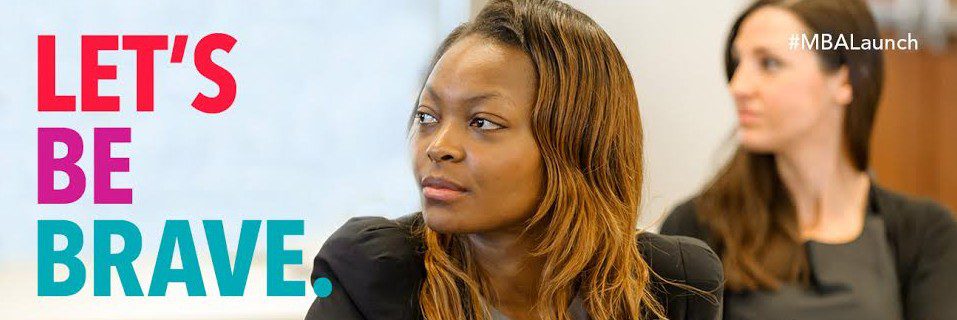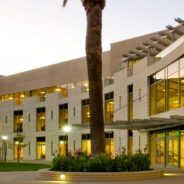If you are thinking about taking the GMAT or want to learn more about Veritas Prep’s GMAT courses, register to attend a one-hour seminar hosted by Veritas Prep’s course co-creator. This seminar will show you what to expect from the GMAT and how to conquer the exam.
Search results for where should I work:
The Top 5 MBA Programs in Italy
If studying abroad for your MBA is an option, Italy is one country that should top your list. A founding member of the European Union, Italy is a leading manufacturer and exporter of a wide variety of products—major consumer goods like include vehicles, pharmaceuticals, clothing, furniture, and food. Agriculture is also vital here, and unsurprisingly, it is the world’s largest wine producer. Additionally, Italy’s place as a global center of luxury goods and fashion position it at the forefront of these big money industries.
Continue reading…
Nike, Autodesk, Highlight New Portland MBA Jobs
As the tremendous growth that has beset both Seattle and the San Francisco Bay Area shows no sign of slowing down, it was only a matter of time before that development reached Portland.
Continue reading…
Top MBA Employers in New York State
It should come as no surprise that students who earn an MBA in New York have incredible opportunities for employment afterward. Whether you’re looking to work in New York City, Rochester, Buffalo, Ithaca, Albany, or Syracuse there are many great companies to work for. There are massive international corporations, local businesses, healthcare, governmental agencies, and more.
Continue reading…
6 Reasons to Consider an MBA
Our friends from Access MBA outline 6 reasons why you should consider an MBA. Read on for their insights as well as their upcoming events near you.
Continue reading…
6 Reasons to Consider an MBA
Our friends from Access MBA outline 6 reasons why you should consider an MBA. Read on for their insights as well as their upcoming events near you.
Continue reading…
Pennsylvania MBA Programs That Don’t Require the GMAT or GRE

Below is a list of business schools in the Pennsylvania That don’t require the GMAT or GRE. More information on the GMAT and GRE can be found in our MetroMBA No GMAT and GRE Guide and a complete list of MBA programs in Pennsylvania on our Pennsylvania MBA page.
Please note that many of these programs are executive MBA programs, which typically cater to applicants with many years of professional experience. Click on a program profile below to see if you meet the eligibility requirements for that program.
The Top Deferred Enrollment MBA Programs
In the past several years, we’ve seen more and more leading business schools offering deferred enrollment MBA programs.
Traditionally, full-time work experience has been a requirement for acceptance into a leading MBA program, with students averaging five years of professional experience at the time they begin their graduate studies.
Most deferred enrollment programs still require work experience—the difference is that students can gain this experience after they earn admission. Deferred enrollment MBA programs guarantee college seniors (and sometimes graduate students) a spot in their MBA programs, allowing them to enroll two to five years after they graduate from college. This allows students to focus on their work experience with their MBA plans already in place.
Read on for information about deferred enrollment programs at:
- Berkeley Haas
- Chicago Booth
- Columbia Business School
- Harvard Business School
- MIT Sloan
- Northwestern Kellogg
- Stanford GSB
- UVA Darden
- The Wharton School
- Yale School of Management
How Deferred Enrollment Programs Work
“This type of program is for those who know that an MBA program is something they want to pursue in the future. Not directly after their undergraduate degree (in most cases), but a couple of years later,” explains Alex Brown, an MBA admissions expert at Clear Admit.
Ambitious undergraduate students apply to b-school during their senior years and then receive a promise of a seat in a future cohort. Typically, they are required to gain two to five years of full-time work experience between being accepted and starting an MBA. Once they do enroll, they join the same MBA cohort as those admitted through the traditional application process.
“Applying and gaining admission during college helps reduce the uncertainty of their plan going forward. So rather than entering an analyst program at a consulting firm, for example, with the hope of gaining admission to a top MBA program after a few years, new graduates can enter the program knowing they have an MBA option already,” says Alex. “Of course, it doesn’t stop them from changing their minds, or pursuing other MBA options and forgoing the early admission.”
These deferred enrollment programs are ideal for candidates with established leadership skills. Typically, candidates have outstanding internships, strong academic credentials, and high test scores when they apply. “Also, these candidates are still typically early in their career arch when they start their MBA programs. But, it makes sense if they are focused and really understand how the MBA program will help develop their career further,” explains Alex. “It’s good for candidates with focused career goals.”
Additionally, it’s worth noting that deferred admissions MBA programs are open to applications from students of all academic backgrounds. In addition to the finance, business, and economics majors, who are well represented in the traditional MBA applicant pool, deferred enrollment programs welcome those from a STEM or humanities backgrounds. Whatever their major, the key for applicants is to have a solid plan for the future and a good sense of how an MBA fits into that plan.

Deferred Enrollment Programs at a Glance
So, what are some of the top deferred enrollment programs and how do they vary?
At a glance, the structure of most deferred enrollment MBA programs are similar. All but Yale SOM are two years in length and place students in the same cohort as the full-time MBA. On the other hand, the Yale Silver Scholars program is three years in length, with the first and third year being the same as the standard MBA and the second year being an extended internship. The reason behind this difference is that the program accepts candidates directly after their undergraduate career without any work experience.
The rest of the programs require that students gain two to five years of full-time work experience before they start their MBA studies. However, in some cases, work experience is not required if the student is currently completing another graduate degree (this is the case for Stanford’s program).
“Generally, the students co-exist in the same program” as those admitted through the traditional process, explains Alex. “Younger students might have more energy and enthusiasm, older candidates might have more experience and insights. It can become a great blend for an academic experience.”
Another key distinction is eligibility; the Haas Accelerated Access and Wharton Moelis programs are only open to UC Berkeley and University of Pennsylvania students, respectively. In 2019, Wharton added another deferred admissions program for students from any institution, not just Penn. MIT Sloan allows MIT students with an undergraduate GPA of 4.25 to waive the GMAT, and UVA Darden, Haas, and Wharton all offer scholarships for their deferred programs.
Deadlines for each of these programs tend to fall April, around the Round 3 MBA application deadlines.
Inside the Deferred Enrollment MBA Programs at Leading Business Schools
Here’s a deeper look at the details of each school’s deferred enrollment MBA structure, eligibility, and application requirements.
Berkeley Haas Accelerated Access
The Berkeley Haas Accelerated Access program is currently only open to UC Berkeley undergraduate and graduate students in their final year of study—though there are plans to expand to the rest of the University of California and beyond in the future. The program offers early conditional admission into the Full-Time MBA program with the ability to defer for two to five years to gain professional experience. There are two application deadlines—one in April and one in June—with an application process very similar to the full-time MBA program, except the application fee is waived.
Application requirements include the application form, university transcripts, two short essays, two recommendations, a resume, and the GMAT or GRE. Interviews are then conducted by invitation only. Accepted candidates must make a $500 deposit.
To celebrate the launch of Accelerated Access, up to five $100,000 scholarship awards will be available for students applying in 2020. Upon matriculation, candidates will be eligible for other scholarships and dual degree programs.
Chicago Booth Scholars Program
The Chicago Booth Scholars program is a deferred MBA program for promising candidates looking to secure a seat in a future Chicago Booth full-time MBA cohort. It’s open to undergraduates from any institution in their senior year, and grants admits a two to four-year deferment before they begin the full-time MBA program. While working full time, students have the opportunity to engage with Booth and explore the University of Chicago community. If candidates prefer to continue working after four years, they have the opportunity to enroll in the Evening or Weekend MBA programs.
Applications are due in April, and are similar to the full-time MBA application. Application requirements include a data form, short answers, an essay, two recommendations, unofficial transcripts (official copies required of admitted students), and professional resume. International students must take the TOEFL, unless their undergraduate degrees were conducted in English. All applicants must take the GMAT or GRE; there is no preference given to either test. Interviews are then conducted on an invitation only basis.
Columbia Business School Deferred Enrollment Program
The Columbia Business School Deferred Enrollment program is open to undergraduate and Master’s students who apply during their final years of study. (Students enrolled in Ph.D. programs, law school, or medical school are not eligible.) Once accepted, they can take two to five years to enter the workforce, and start the full-time MBA program when it’s right for them. To begin the program, candidates simply send the school a letter of intent to Columbia indicating whether they want to enroll in January (16-month program) or August (20-month program with summer internship). Admitted students gain access to conferences, events, and school-wide resources prior to matriculating.
Applications are due by mid-April, and requirements include a data form, short answer questions, an essay, two recommendations, academic transcripts, and professional resume. All applicants must take the GMAT, Executive Assessment, or GRE within three weeks of applying. Interviews are then conducted on an invitation only basis. CBS releases decisions on a rolling basis, within two weeks of the interview.
In 2019, 114 candidate were admitted to the CBS Deferred Enrollment Program. Their GMAT scores ranged from 640-790, and GPAs ranged from 2.92-4.0. Forty-nine schools and 11 countries were represented in this incoming class.
Harvard Business School 2+2 Program
Harvard’s 2+2 program is perhaps the best-known deferred MBA. Candidates apply in their final year of undergraduate or graduate school, then spend a minimum of two years (maximum of four) working full-time before they begin Harvard’s full-time, two-year MBA program. This program is open to students who plan to work in the public, private, or nonprofit sector, with preference given to applicants planning to work in an operating company (tech, manufacturing, consumer goods, retail, industrials, etc.), from a lower socio-economic background, going into a technically demanding role, or pursuing entrepreneurship. Students enrolled in Ph.D. programs, law school, or medical school are not eligible; they should apply through the regular MBA admissions process.
The application is essentially the same as for the traditional MBA program, though the application fee is $100 instead of $250. The application fee is waived for active duty military applicants. The admissions deadline is in April. Candidates may enter the full-time MBA program once they have met work experience requirements.
More than 1,400 candidates applied to be a part of the Class of 2023, and 115 students ultimately committed to the program. Their GMAT scores ranged from 590-790, and their average GPA was 3.79.
Kellogg Future Leaders
Northwestern Kellogg’s Future Leaders program is open to any undergraduate student in their final year of school, as well as Master’s students who began their graduate programs directly after undergrad. Students enrolled in Ph.D. programs, law school, or medical school are not eligible; they should apply through the regular MBA admissions process.
Successful applicants defer their enrollment at Kellogg for two to five years, during which time they are expected to gain relevant work experience. Candidates may also reassess which MBA program to join; while applicants are accepted into the full-time two-year MBA program, they can also choose the Evening & Weekend or One-Year program. They may also expand their plans to consider the JD-MBA or MMM, though those require admission to the other Northwestern schools.
The application requires brief essays, a recommendation, and an interview by invitation; the TOEFL and GMAT/GRE are also conditional requirements. Non-native English speakers must take the TOEFL, unless their undergraduate studies were conducted in English. Northwestern undergraduates do not have to take the GMAT/GRE, but it is required for all other students. While there is no application fee, admitted candidates need to make an initial deposit of $500, then $500 for every year of deferment; these funds ultimately apply to tuition when they matriculate.
MIT Sloan MBA Early Admission
The MIT Sloan MBA Early Admission program is open to any exceptional undergraduate student during the year that they are graduating. Graduate students without full-time work experience may also apply. Between being accepted and starting the program, candidates are expected to seek two to five years of full-time work experience.
Applications are due in April, and requirements include a data form, cover letter, video statement, two recommendations, academic transcripts, and professional resume. All applicants must take the GMAT or GRE, but MIT students can waive the GMAT or GRE if they have a GPA above 4.2. Interviews are then conducted on an invitation-only basis. The application fee is waived for all candidates.
Stanford GSB Deferred Enrollment
The Stanford GSB Deferred Enrollment program is open to undergraduate students who want to begin their MBAs immediately after their senior year. However, students are encouraged to defer for one to three years to gain work experience (two-year deferrals are most common). They can apply during any of GSB’s three application rounds, and can choose which year’s MBA cohort they would like to enter. If they decide to defer for one to two years, they can apply for specific fellowships the year before starting their full-time MBA.
Those eligible for deferred enrollment have their application fee reduced to $100.
UVA Darden Future Year Scholars Program (FYSP)
The UVA Darden FYSP program is open to undergraduate students in their final year, as well as Master’s students. Candidates can apply in January, April, or August. Once admitted, they then go on to gain two to four years of work experience while also gaining access to the Darden alumni community for mentorship, networking, and individualized career support. Then, once ready, candidates join the regular full-time MBA program.
The application requires a GMAT, GRE, MCAT or LSAT score, but applicants are encouraged to take the GRE or GMAT before matriculating. Applicants must also submit a resume, transcripts, an essay, and two letters of recommendation. While there is no application fee, admitted candidates need to make a deposit of $500 for every year of deferment; these funds ultimately apply to tuition when they matriculate.
Wharton Advance Access Program
Undergraduate seniors and graduate students from any institution outside of Penn can apply early for the Wharton MBA through the Advance Access Program. Accepted applicants receive special professional development and career services support, as well as access to the Wharton community including annual retreats and mentoring. Applicants may apply in their senior year during Round Three of the MBA admission timeline, and are evaluated similarly to the overall MBA applicant pool. Candidates defer for two to four years of work experience, and then join the regular two-year, full-time MBA program when they’re ready.
University of Pennsylvania undergraduates, specifically, can apply through the Wharton Moelis program. The benefits mirror those of the Advance Access program, with the added potential for a $10,000 yearly fellowship (or more, based on merit).
While the application fee for the Moelis program is waived, applicants through the Advance Access program must pay a reduced application fee of $100. The application requirements for both options include unofficial transcripts, GMAT or GRE score, a resume, two letters of recommendation, two essays that are the same as the general MBA application, and interviews (Team-Based Discussion & one-on-one). Admitted candidates through either program need to make a deposit of $1,000 at the beginning of June of the year they are accepted, and then another deposit of $1,000 when they decide to matriculate. The school also expects yearly affirmation of intent to attend the program, as well as verification of work experience.
Yale SOM Silver Scholars
Students admitted to the Yale Silver Scholars program start their MBA studies immediately after college graduation. Candidates spend one year completing the core curriculum, and then undertake an extended full-time internship in year two. Then, during the third year, they return to Yale SOM to complete their degree with MBA elective courses. Students are fully integrated into the Yale SOM MBA class, but they have special programming and career development support that’s tailored to them. Candidates apply during their senior years of college.
Applicants complete the same online application as regular enrollment candidates, with nuances in the Work Experience and Activities sections of data form. Yale notes that only college seniors are eligible to apply, and they must submit two letters of recommendation. If invited to interview, candidates will meet with one or more members of the Silver Scholars committee.
This article has been edited and republished from its original source, Clear Admit.
Investment or Tech: Which Industry is Right For Your Career?
Job hunting between a career in investments or tech is a good problem to have. Each one, especially with an MBA under your belt, has enormous earning and growth potential, job security, and perks.
Continue reading…
Top MBA Recruiters: Bank of New York Mellon
If you’re interested in the world of investment, look no further than the Bank of New York Mellon. This investment company is an OG of the financial world. Founded in 1784, BNY Mellon is based in New York City, one of the financial capitals of the world and a perfect destination for a banking career.
Continue reading…
Columbus’ New MBA Job Opportunities
In tribute to the (maybe) beginning of this year’s election process, this column will be focus on the center of the country. Home of Ohio State University, Columbus, Ohio is an extremely livable city and one of the top locations for business growth in the country. Ambitious MBA graduates can certainly make a name for themselves in the city while maintaining a more relaxed lifestyle than they could in New York or Chicago.
Continue reading…
Get a Jump on These NYC Finance Careers
Money moves around faster than ever, making it an exciting time as many companies are preparing themselves for their futures and figuring out where the market will go next. This week, we will focus on five of the many NYC finance careers to the quants out there.
Continue reading…
MBA Jobs in Texas
As this writer prepares your weekly MBA job digest, the weather has hovered around a brisk 35º F (1.6º C). Many of us who have grown accustomed to this kind of inclement weather try to occupy ourselves with daydreams of more easygoing locales with more hospitable climates. Texas isn’t a bad place to be in the middle of January.
Continue reading…
Top MBA Recruiters: Moelis & Company
Moelis & Company is the investment bank of the future. The New York-based company was founded in 2007, on the heels of the Great Recession, so it’s familiar with the uncertainty our future holds. That’s why clients have trusted it with more than $2.9 trillion worth in investments. That makes a Moelis & Company career a great place for MBA students and graduates to grow.
Continue reading…
Top 5 Scandinavian MBA Programs
Scandinavia isn’t just a beautiful location where you can see the northern lights. There are some top-notch global universities in Sweden, Finland, Denmark, and Norway that shouldn’t be ignored. These schools offer high-quality teaching, cutting edge research, and exceptional student services.
Continue reading…
What an ADP Job Can Mean for MBA Candidates
Most people may be familiar with New Jersey-based software company ADP when it’s pay day. The company offers human management software—and it’s where many turn to access their digital paystubs and salary info. But remember: There are people behind the machine, and an ADP job offers incredible career opportunities for MBA students and grads alike.
The company—whose letters stand for Automatic Data Processing (or Always Designing for People (depending whom you ask)—has some 58,000 associates worldwide, and that number is only growing with open positions around the globe. Business school grads are sure to have the necessary chops to improve the company’s workforce, but they’ll need some key info to be sure that it’s the right place for them.
ADP Career Outlook
This is a pretty big-deal company even if it’s not a household name. It’s been featured on the Forbes 500, which ranks companies based on their sales, profits, assets, and employees. In fact, ADP boasts an annual revenue of more than $13 million. Since first joining the Forbes 500 in 1996, the company’s ranking has only gone up.
To make things better, Forbes lists it 21st overall for its “Best Employers for Diversity 2018” list, so MBA students and graduates of color can rejoice in knowing this is a place that’ll appreciate their unique experiences and perspectives. The fact that its employees come from around the world is certainly a plus, too. Its office has locations in more than 25 countries, including the U.S., Brazil, Hungary, Singapore, and India.
Featured job openings at ADP include:
- Sales executive
- Project manager
- Client support consultant
- Account executive
- Business consultant
- Associate district manager
ADP Job Salary and Benefits
Let’s be honest: Much of a company’s appeal comes down to what it offers. The average salary at ADP is $80,000, according to PayScale. That’s not too shabby. And employees at the company seem fairly happy. That’s true, according to the country’s own testimonials but also from what employees have recorded on Glassdoor.

The reviews are largely positive, and most workers would even recommend the job to a friend. Why? Weekends are off. People actually go home when they’re supposed to. Many people rave about the company culture. I guess offering holidays, personal days, and paid vacations will create a damn good culture.
But that’s only a snippet of the benefits ADP offers. The company also is sure to give its employees the basics: life insurance, medical insurance, a matched 401K, and commuter savings. ADP doesn’t stop there, though. Tuition reimbursement, paid volunteer time off, access to the ADP Federal Credit Union, and mentoring also come with a job at ADP.
“This is the kind of environment that embraces new associates and that really is looking for external perspective, looking for a diversity of opinions, and you can come to this organization and really make an impact,” said Susan Quatrella, ADP’s vice president of compensation, in a statement.
Landing The ADP Job
Someone can score a role at ADP in the field of marketing, sales, or human resources. Still, a diverse skill set never hurts, especially when entering the tech world. The company is globally minded, so those interested in working should be sure they have the proper know-how to appeal to that. Perhaps consider focusing your MBA in global management or choosing a program with an international MBA. Interning at another company with a global workforce could sure help, too.
The possibilities are really endless here. If you want to take a more tech focus with your MBA, ADP’s got something in development for you. If numbers are more your jam, a role in finance is sure to be waiting. Just be sure to hone your craft and sell whatever your focus area may be so that you can show ADP—or any company, for that matter—just why they need you on their team.
New New York City MBA Jobs for Experienced Candidates
From week to week, this column highlights positions for freshly graduated MBAs. The going assumption is that readers have about five years of prior work experience. However, there are many MBA graduates who have spent a decade or more working in the field before they arrived at the decision to pursue b-school. This week, let’s explore jobs for more experienced MBA graduates.
Continue reading…
The Top 5 Texas Salaries for MBA Grads
While many business hubs of the world lie in major cities like New York and Tokyo, plenty of opportunities lie elsewhere. Like Texas, for instance. This state is home to growing cities, such as Austin, Houston, and the Dallas-Fort Worth region, which saw the largest population growth than all U.S. cities. So why not consider these top MBA grad Texas salaries to see if it’s the place for you?
Continue reading…
Flexible Learning for SCU MBA Students
Sponsored Content
Santa Clara University MBA students will soon have access to a greater number of elective courses both online and on campus, thanks to a new offering from the Leavey School of Business called “MBA Anywhere: You Choose, You Excel.” Under the pilot initiative, MBA students may take elective courses across both online or on-campus modalities, ensuring they receive the best education that fits into their busy schedules.
Continue reading…






 Arcadia University does not require the GMAT or GRE for admissions into our MBA program.
Arcadia University does not require the GMAT or GRE for admissions into our MBA program. 

































